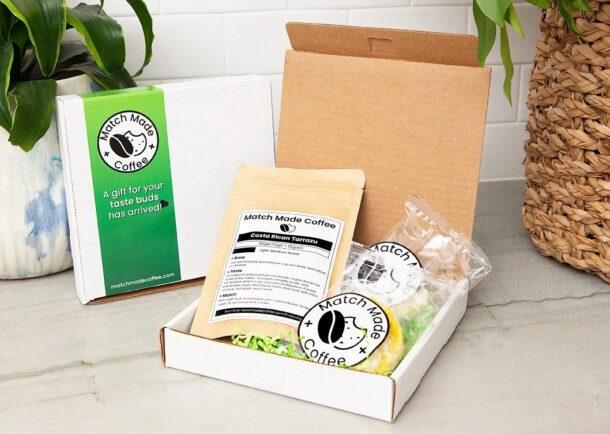First, if we’re talking plain black coffee, it technically doesn’t give you energy no matter how you roast or prepare it. Caffeine is just chemically very similar to the chemical that makes your body have the feeling of tiredness. Caffeine goes in and fills up the receptors, so your body simply cannot feel that it is tired. Some think of this as energy, but it’s a little bit different.
If we’re not talking about black coffee, then energy could come in other forms. But, whatever was added to the coffee (milk, creamer, sugar, and so forth) is where this energy comes from.
The roast level is what has the biggest impact on the amount of caffeine. The longer you roast the coffee beans, the more caffeine gets burned away. So, “if you want your day to be brighter, make sure your coffee roast is lighter.”
The next big consideration is going to be the type of filter (if any) that comes with your particular coffee preparation method. The oil in the coffee brings out lots of the natural flavors of the beans. Darker roasts tend to have lost more of their oil. That is also why oftentimes dark roasted beans look shinier. That is actually the oil escaping. Not only that, but the natural flavors start to become lost. You can get different flavors depending on the particular region, elevation, processing method (etc). At that point, you start to taste more of the roasting process rather than the unique points of the coffee beans themselves.
As a secondary consideration, the coffee loses more of its oils if you utilize paper filters. The coffee beans’ oil gets trapped in paper filters more easily. Drip coffee makers and espresso machines can have paper or metal filter options generally, so keep that in mind. French Press and Aeropress offer you a lot more control, but French Press tends to have a metal filter and Aeropress a paper. Pour-over/Chemex brew methods tend to use paper filters as well.
But, depending on your particular fondness of black coffee, having a milder cup might be more up your alley. I typically recommend the pour-over or Chemex method for people who want to try black coffee but are new to it. The flavor tends to have less of a punch that tends to be what people dislike about black coffee. Then, once the person gets used to black coffee, start trying other coffee brewing methods.
Also, cold-brewed coffee tends to retain the most flavor and caffeine. There’s no real heat or anything applied to the brewing process. But, it takes forever. It is fairly common for cold-brewed coffees to take 24 hours to brew properly.
The last biggest consideration is the possibility of over-extracting the beans. This can happen in the brewing process by going too hot or brewing for too long. If you use a percolator or a stove to heat your water, you might run into this issue. Or, if you use a water heating device that doesn’t offer you much control in the 195-200 degree Fahrenheit area. That is usually the sweet spot. Or, if you use French Press or Aeropress and forget to set a timer, it could over-extract also.
As for those coffee jitters, to avoid that, just keep in mind your total caffeine consumption. If there’s more caffeine in your particular roast and brew method, take that into account. Drink water and find your personal balance and adjust.
Do you have any questions? Let me know in the comments!

